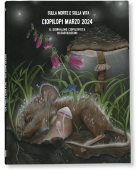HERRICK ROBERT
 Robert Herrick (1591-1674)
Robert Herrick (1591-1674)
Poet, born in London, was apprenticed as a goldsmith to his uncle, Sir William Herrick, with whom he remained for 10 years. Later, he went to Cambridge, took orders, and in 1629 was introduced by Charles I to the living of Dean Prior, a remote parish in Devonshire, from which he was ejected in 1647, returning in 1662. During these years, he appears to have lived in Westminster, probably supported by the gifts of wealthy Royalists.
His Noble Numbers or Pious Pieces was published in 1647, his Hesperides or Works both Human and Divine in 1648, and the two collected in one volume in the latter year. Over 60, however, of the lighter poems included in Hesperides had previously appeared anonymously in a collection entitled Wit’s Recreations. Herrick’s early life in London had been a free one, and his secular poems, in which he proves to be much more at ease than in his sacred, show him to have been a thorough Epicurean, though he claims that his life was not to be judged by his muse. As a lyric poet, Herrick stands in the highest rank for sweetness, grace, and true poetic passion, and some of his love songs, e.g. Anthea, and Gather Ye Rose-buds, are unique in their kind; while in such exquisite little poems as Blossoms, Daffodils, and others, he finds a classic expression for his love of nature and country life. He has been regarded as “the most frankly pagan of English poets.”
From Biographical Dictionary of English Literature - the Everyman Edition of 1910
links: - Robert Herrick home page - Dead Poets Society - Poetry on line Texts of Lieder and Art Songs |






